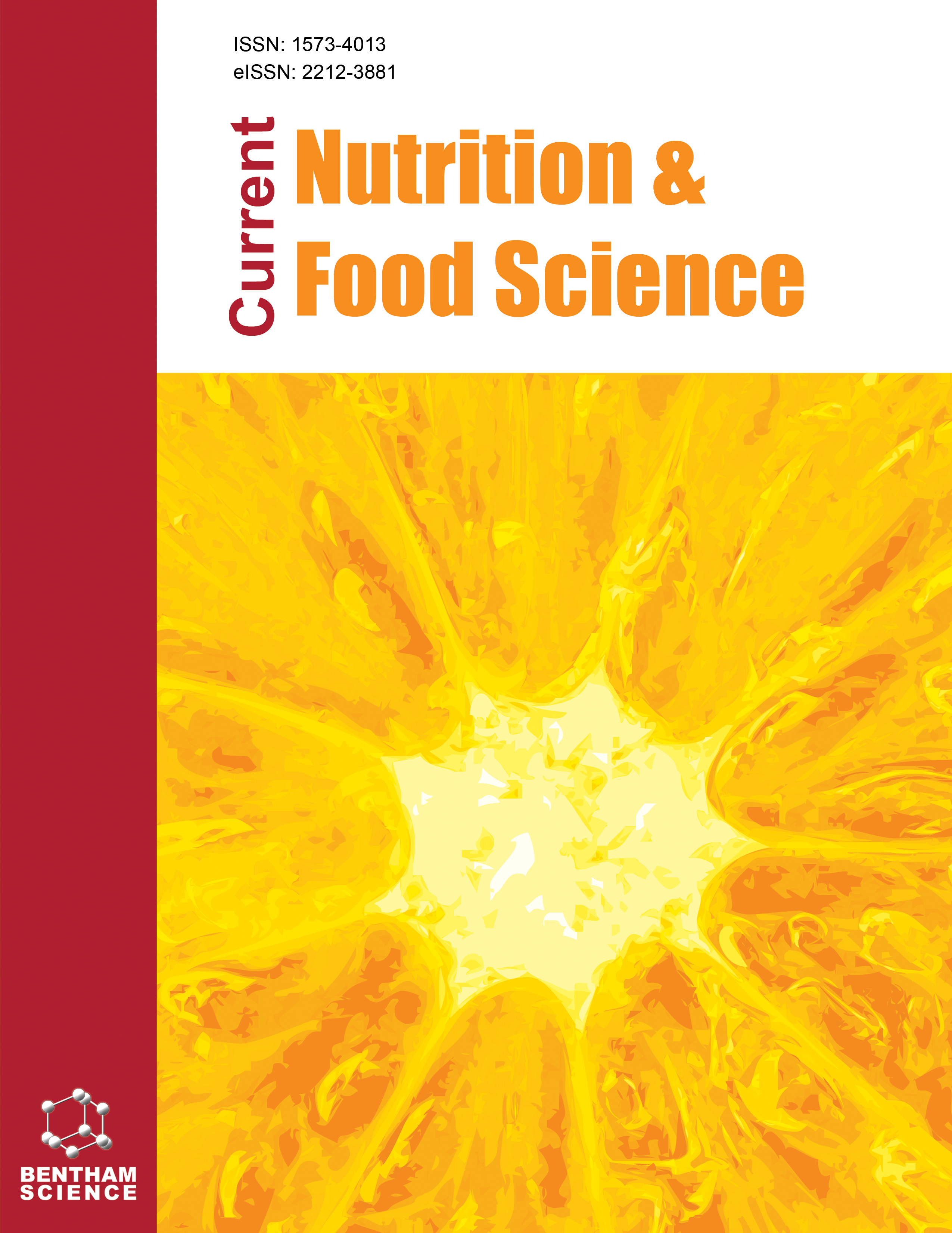-
s The Effect of Different Roasting Durations on the Acrylamide Concentrations in the Arabic Coffee Beverages
- Source: Current Nutrition & Food Science, Volume 15, Issue 7, Dec 2019, p. 678 - 684
-
- 01 Dec 2019
Abstract
Background: Acrylamide is the most powerful carcinogenic and neurotoxic compound widely distributed in thermally processed foods. This compound is formed during early stages of roasting processes of coffee beans through Millard reaction between reducing sugars and asparagine. Due to the huge consumption of coffee throughout the globe, it has been considered as the major dietary source of this dangerous compound. Thus, this study aims to investigate the effect of roasting conditions on sugars and acrylamide contents in the Arabic coffee beans and beverages. Methods: Arabic coffee beans were roasted at 125°C for 30 to 60 min, ground to powders, brewed in boiling water for 20 min and then analysed for sugars and acrylamide contents. Results: Roasting conditions significantly (P ≤ 0.05) reduced the content of both reducing and nonreducing sugars compared to untreated samples. Increasing roasting duration to 40 min significantly (P ≤ 0.05) increased the acrylamide concentration values to the maximum, whereas extending the duration over 40 min (P ≤ 0.05) reduced the acrylamide concentration of coffee beans and beverages. Conclusion: The present study confirms that the process of roasting coffee beans is a significant factor in the formation of acrylamide in Arabic coffee powders and beverages.


